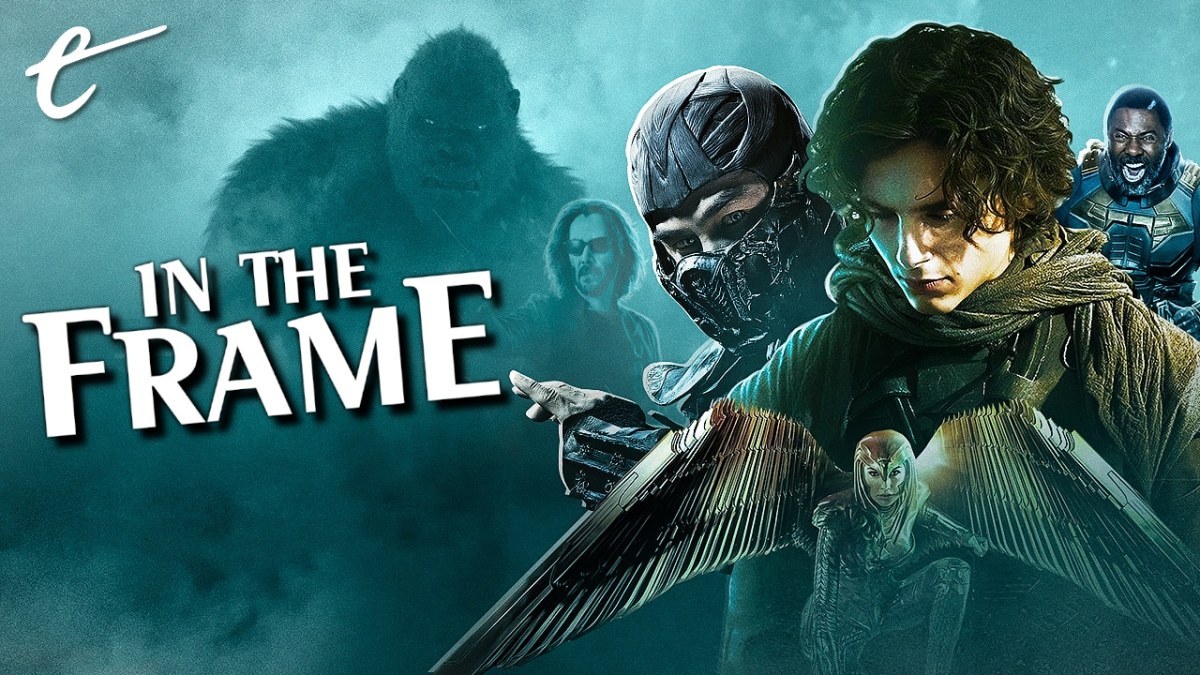With the release of The Matrix Resurrections, Warner Bros.’ HBO Max blockbuster experiment is complete. The results have been interesting, to say the least.
“Project Popcorn” was, by all accounts, masterminded by Warner Bros. owners AT&T and WarnerMedia CEO Jason Kilar. The plan was to simultaneously release the company’s slate of blockbusters in theaters and on HBO Max as a way of growing the streaming platform’s membership to help it better compete with other platforms like Disney+ or Netflix. The move was hugely controversial and divisive, even within the context of a tumultuous time for Hollywood studios.
The plan was heavily criticized at the time, by both insiders and outsiders. Christopher Nolan described HBO Max as “the worst streaming service.” Denis Villeneuve described the decision as one that demonstrated “complete disregard” for the company’s history as “a legacy home for filmmakers.” Many filmmakers only found out that their movies were going straight to streaming with the public announcement. The angrier voices branded the company “Former Bros.”
It seems safe to acknowledge that the deal didn’t work out exactly as AT&T planned. It didn’t quite turn HBO Max into a streaming powerhouse. While the decision undoubtedly contributed to HBO and HBO Max’s combined 12.5 million growth in subscribers in 2021, that is still a significantly slower increase than the 60% growth of Disney+ subscribers between November 2020 and November 2021, or Netflix’s growth from 195 million subscribers in Q3 2020 to 214 million subscribers in Q3 2021.
Many of the movies underperformed in theaters, including well-reviewed films like The Suicide Squad and King Richard. Many also struggled to gain traction on HBO Max. James Wan’s Malignant failed to find an audience in both theaters and streaming. Releasing easily ripped versions of films overlapping with theatrical releases might not be the best strategy. It flopped at the box office, but clean rips of The Matrix Resurrections are more popular on torrent sites than shaky recordings of Spider-Man: No Way Home.

However, while acknowledging these disappointments, there have been some interesting consequences stemming from the HBO streaming deal. While “Project Popcorn” might not have accomplished what AT&T and the studio wanted it to do commercially, there were several unintended positives that accrued from the decision. Against all odds, this spectacularly risky gambit might have saved Warner Bros. from itself.
Most immediately, committing to the day-and-date release model meant that Warner Bros. had committed to put movies in theaters no matter what. While studios like Universal and Disney pushed their looming theatrical releases like F9 and Black Widow back into June and July, Warner Bros. releases like Godzilla vs. Kong and Mortal Kombat were screening theatrically in March and April. This meant that cinemas had big movies to show as audiences were finally turning out again.
As other studios strategically withheld their releases to maximize potential box office, Godzilla vs. Kong provided cinemas with an unexpected lifeline. Cinemas need a constant churn of new releases to attract audiences, particularly at a time like this. As of mid-April 2021, four of the top five films at the domestic box office since the start of the pandemic were Warner Bros. films. Godzilla vs. Kong remained at the top of the box office for four weeks and in the top 10 for nine weeks.
However, this experiment has more profound long-term implications. If nothing else, it might serve as a cautionary tale. It perhaps sets limits on how radically companies like AT&T might attempt to reshape the Hollywood landscape. After all, this is something of a postmortem; even as the pandemic rages on, it seems like this streaming day-and-date experiment is over. In August, Warner Bros. committed to a 45-day theatrical exclusive window for 2022 releases like The Batman.

Evidence suggests that these sorts of productions are not sustainable as streaming releases. Hollywood is learning this. In May, AT&T divested itself of Warner Bros. with Jason Kilar announcing his departure. This seemed to be a concession that AT&T’s planned vertical integration — where the company would own the studio making the movies, the streaming service screening the movies, and the internet infrastructure supporting the streaming service — wasn’t viable.
The failed experiment also provides additional cover for box office disappointments. Box office prognostication is a dark art at the best of times, but it seems particularly futile at a time of an unprecedented global pandemic. While it might be fun to blame “millennian” audiences, it’s not too hard to figure out why older audiences aren’t turning out for traditionally adult-oriented fare like King Richard or West Side Story, while younger audiences turn up for Marvel Studios films.
In a situation where going to the cinema offers the risk of a potential infection, it is understandable that audiences aren’t turning out for films that are available online for free. At a point in time where the growth of streaming services has stalled in the US and most households are already maxed out on streaming subscriptions, is it any wonder that this streaming revolution has led to a corresponding increase in movie piracy? In some respects, it’s a wonder these movies made any money at all.
Warner Bros. seems to be making some concession to this reality. Notably, the year following “Project Popcorn” has seen the studio making a conscious and concerted effort to retain talent following the damage done to creative relationships. Despite a somewhat modest box office performance, grossing less than Marvel “disappointment” Eternals, Warner Bros. announced that Denis Villeneuve would be directing a sequel to Dune.

Recent years have seen Warner Bros. pushing against its reputation as a studio that is friendly towards creative talent, as evidenced by the release of Joss Whedon’s Justice League. In June 2017, reports suggested that Warner wanted to “avoid auteur directors who want final cut.” However, over the past year, Warner Bros. Studios and Networks CEO Ann Sarnoff has been keen to emphasize the renewed importance of the studio’s long-term relationships with its key creative talent.
Even after the box office underperformance of The Many Saints of Newark, Sarnoff announced that Warner Bros. would develop other projects with David Chase. Despite reports (seemingly confirmed by producer James McTeigue) that Warner Bros. planned to move ahead with the Matrix franchise without her back in October 2017, Sarnoff insisted in October 2021 that the studio was eager to work with director Lana Washowski, boasting, “Anytime Lana wants to make a movie, we’re all in.”
The long-term effects of “Project Popcorn” will likely take years, if not decades, to properly assess. However, the initial response is promising. The scheme didn’t succeed in the way that its architects had hoped, but it did help keep cinemas afloat during a troubled year, demonstrate the limits of vertical integration by these massive multimedia conglomerates in Hollywood, provide cover for underwhelming box office results, and bring Warner Bros. back to its creative talent.
If nothing else, it remains a fascinating creative test case. In its own weird and completely unexpected way, the miscalculations of “Project Popcorn” might point the way to a healthier future for Warner Bros. and Hollywood as a whole.






Published: Jan 3, 2022 11:00 am